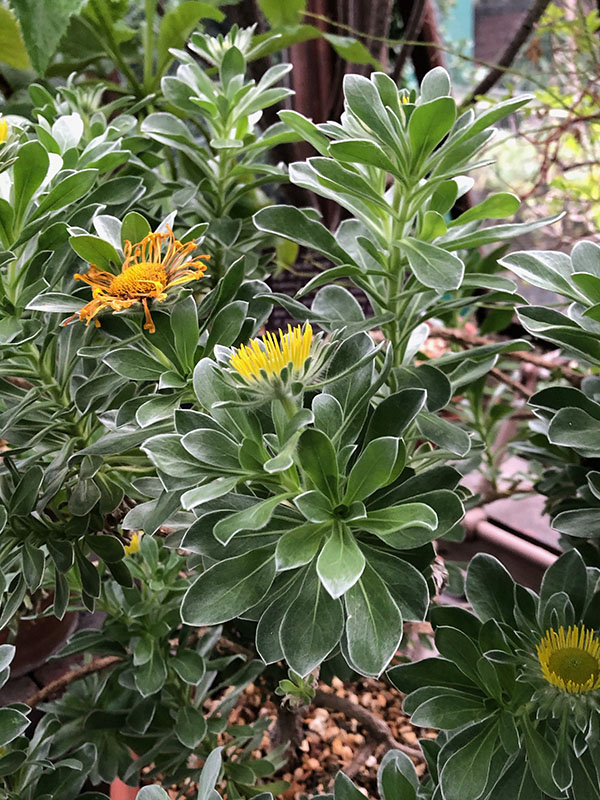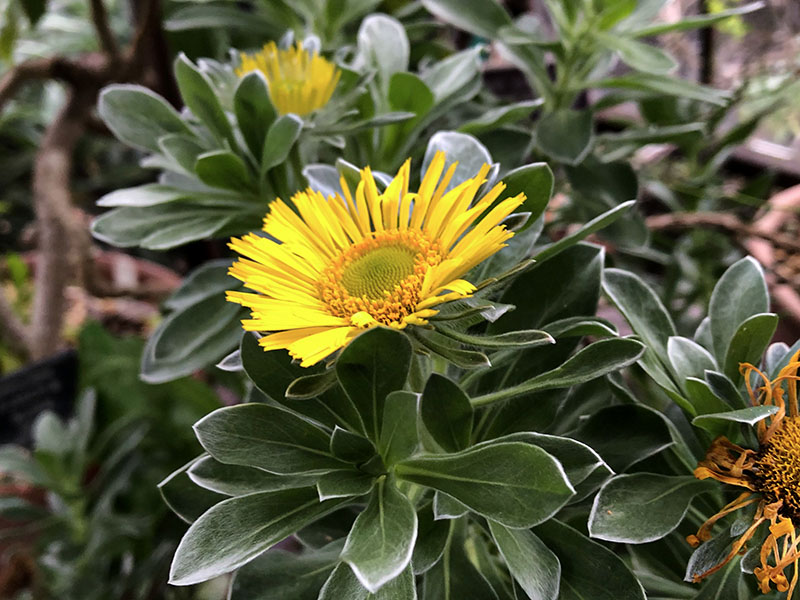
Perennials, Tropicals > Asteriscus > Asteriscus sericeus > Asteriscus sericeus
Asteriscus sericeus
Canary Island Daisy
Origin: Native to the Canary Islands.
| Family |
| Asteraceae |
| Genus |
| Asteriscus |
| Species |
| sericeus |
| Category |
| Perennials, Tropicals |
| Type |
| Shrub (evergreen) |
| USDA Hardiness Zone |
| 9a |
| Canadian Hardiness Zone |
| 8b |
| RHS Hardiness Zone |
| H4 |
| Temperature (°C) |
| - 10 to - 5 |
| Temperature (°F) |
| 20 - 25 |
| Height |
| 0.5 to 1 m |
| Spread |
| 0.5 to 1 m |
Photographs
Description and Growing Information
Flowering Period
| General Description |
| Large, bright, yellow flowers bloom atop dark grey stems. The plant has broad, rounded leaves with a dark, pale green tone. |
| Landscape |
| Flower beds, single specimen, container, succulent garden, shrub garden. |
| Cultivation |
| Plant in full sun in well-drained soil and water sparingly. |
| Shape |
| Early growth as a dense mound, but as the plant ages it begins to become more upright. |
| Pests |
| No notable pests or diseases. |
| Habitat |
| Grows in mountains and along rocky coasts at about 700 m above sea level. |
| Bark/Stem Description |
| Dark grey in colour. |
| Leaf Description |
| Flat formed leaves have a silver and light green colouring. Length of leaves vary between 2.5 - 5 cm. Leaves contain some hairs contributing to a slightly fuzzy appearance/texture. |
| Flower Description |
| Yellow petals measuring about 7.5 cm wide, with a star-like shape blooming between late winter and early summer. |
| Notable Specimens |
| Chelsea Physic Garden, London, United Kingdom. |
| Propagation |
| Propagate from seed. |

